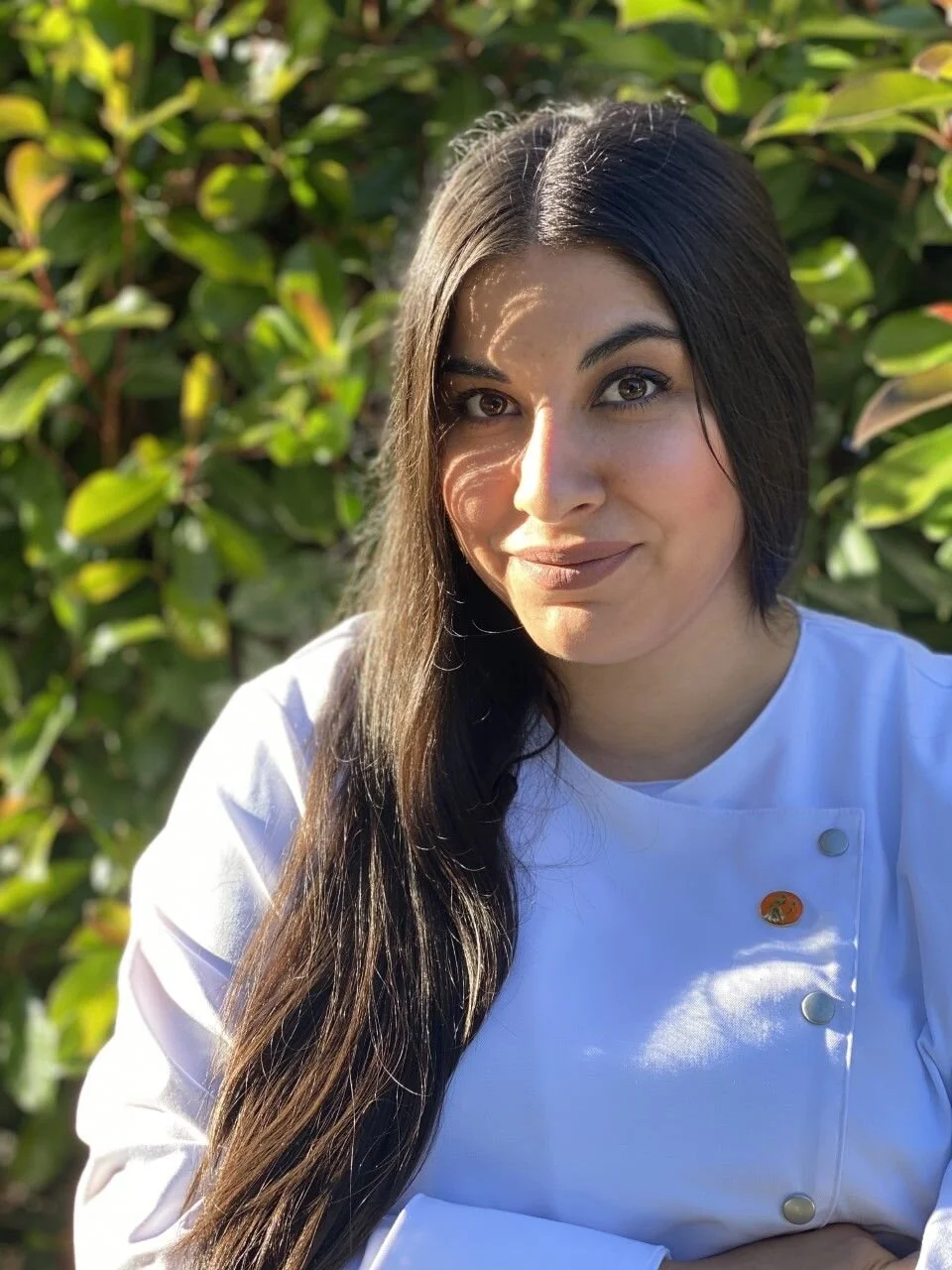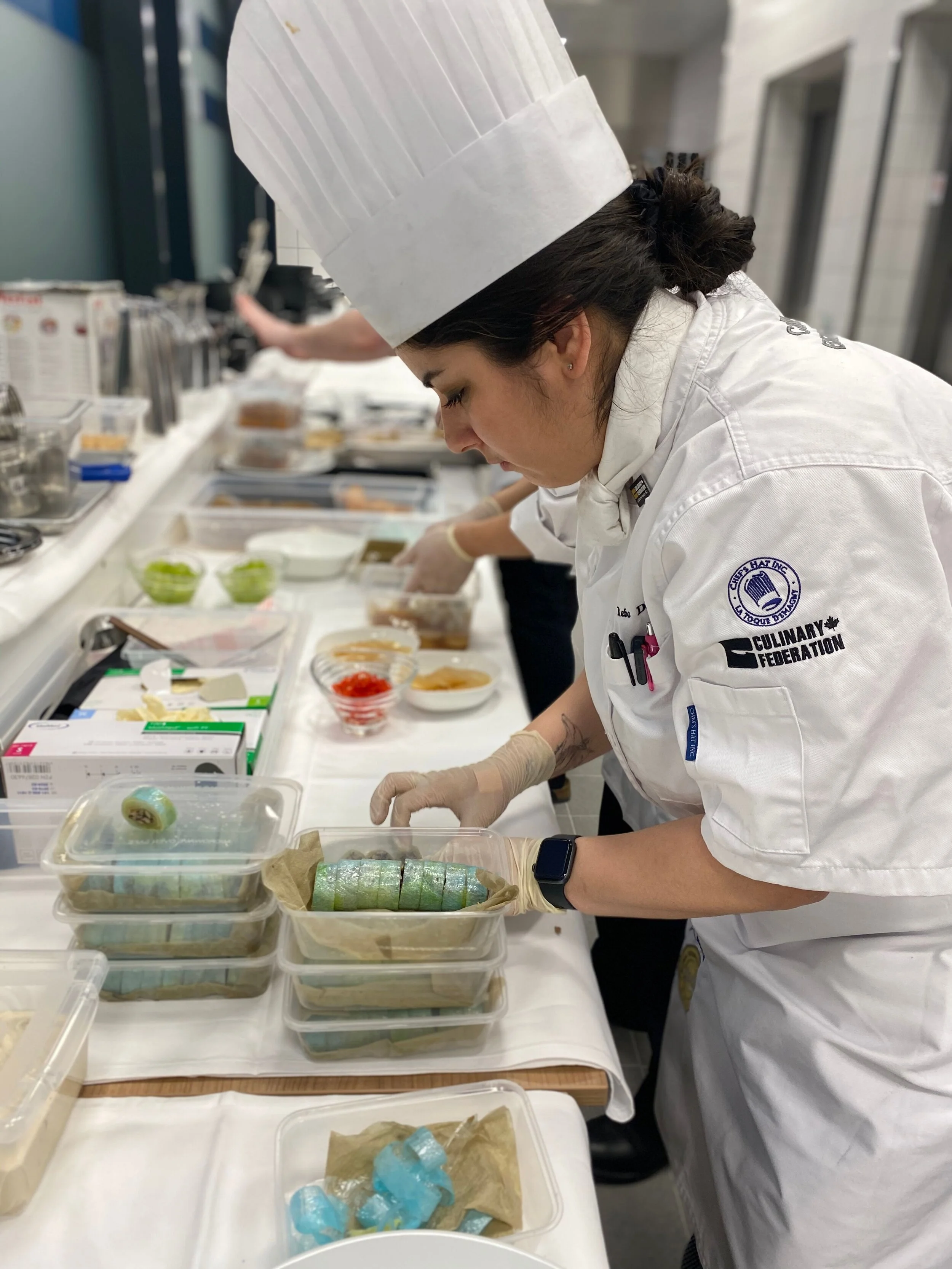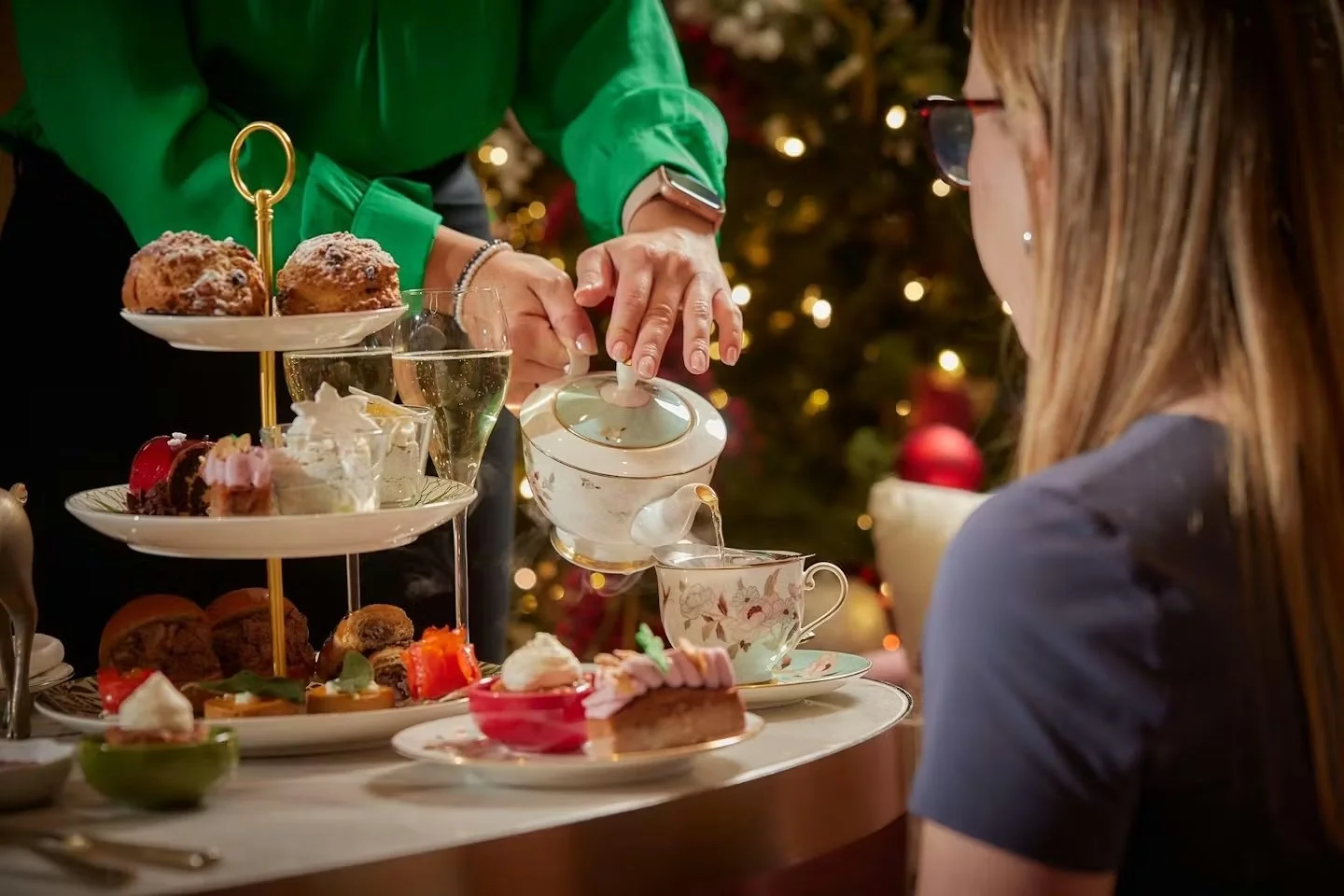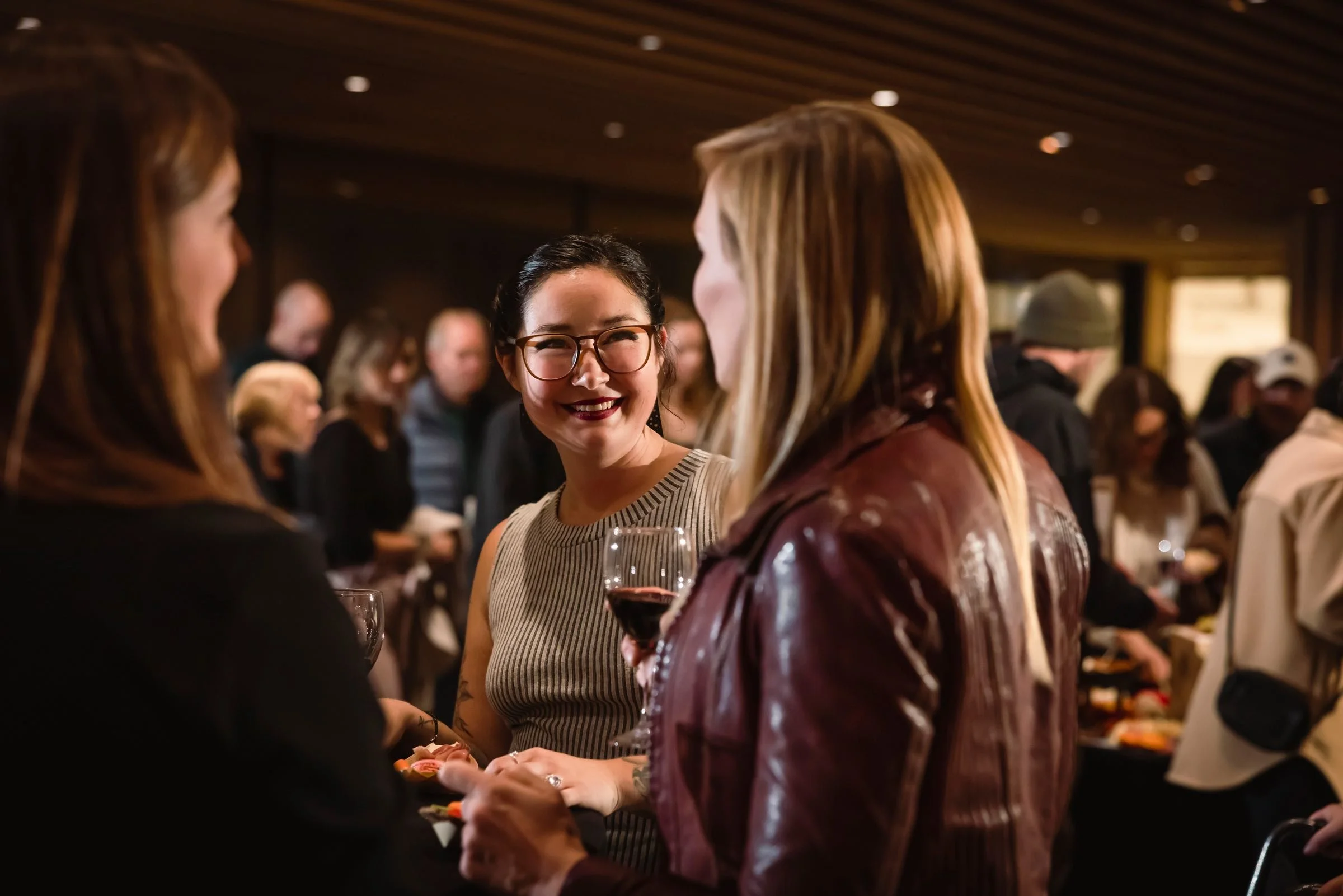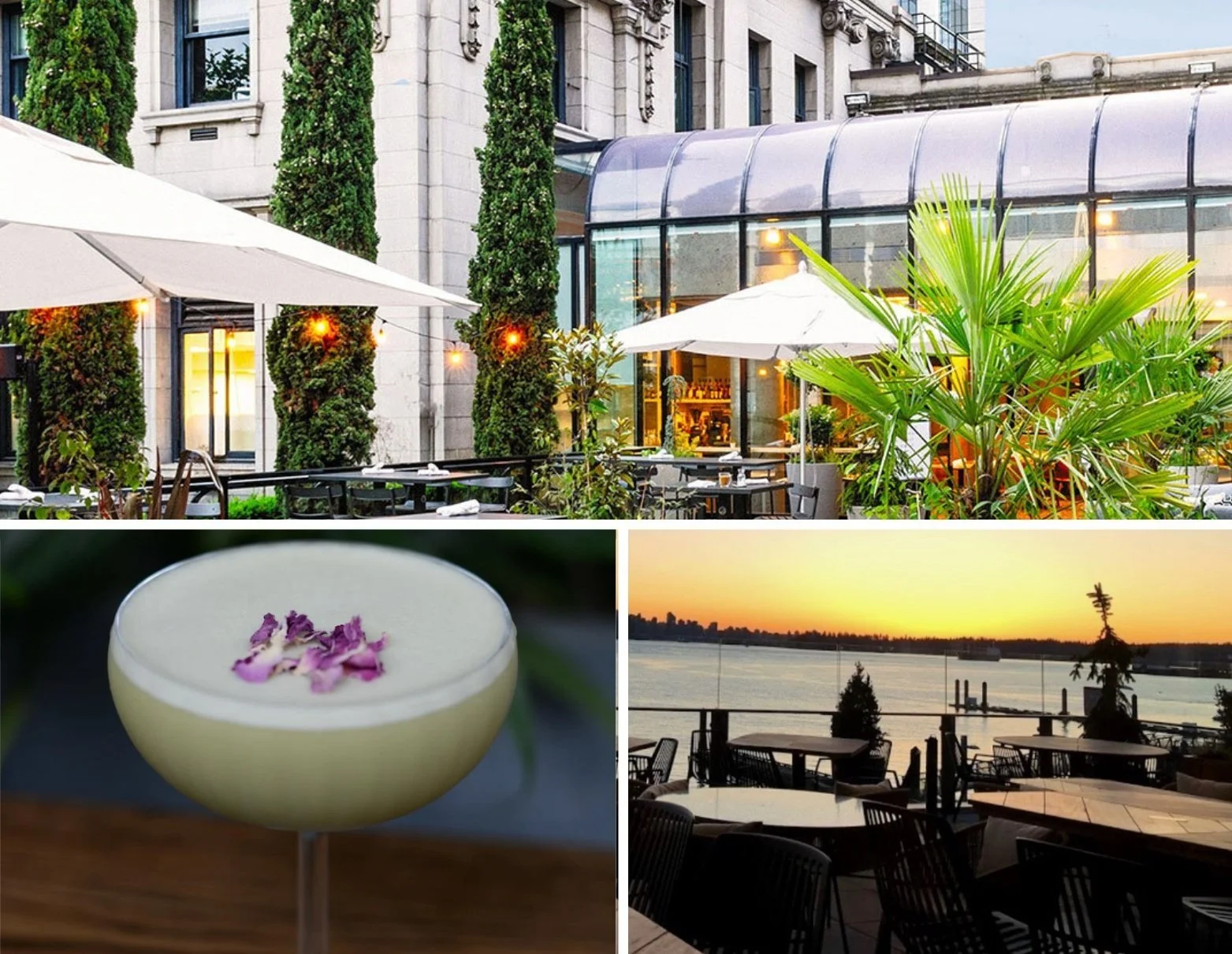Indigenous chef joins Culinary Team BC, with hopes of elevating native ingredients of her homelands
Reba DeGuevara aims to broaden people's understanding of Indigenous history and culture through food
For Reba DeGuevara, food is a way to tell true, complete stories of her Indigenous culture.
REBA DEGUEVARA’S LOVE of cooking started with a soufflé. She learned to make it at school in Grade 11, and something about the process clicked: it felt like second nature, the motions of folding and beating egg whites becoming embedded in the muscle memory of her hands. While cooking wasn’t a big part of her childhood, hunting was. A Syilx (Okanagan) member of the Westbank First Nation who has Yaqui heritage (owing to her Native American grandfather’s Mexican roots), she remembers meals of moose, elk, and deer.
Now, as the newest member of Culinary Team BC, DeGuevara is building on her recent culinary training to deepen people’s understanding of Indigenous history and culture. She already has some ideas in mind for the next IKA/Culinary Olympics that she’ll be attending with the team. It’s the oldest and largest international culinary arts competition in the world, taking place in Europe every four years.
DeGuevara’s path to a culinary career was circuitous. Now 27, she earned a degree from UBC in political science and First Nations studies prior to working in public health. After a few years in the field, she took on a part-time job at Salmon n’ Bannock, Vancouver’s only full-service Indigenous restaurant. She loved it. She enrolled at the Pacific Institute of Culinary Arts, graduating with two diplomas—culinary arts as well as pastry and baking arts—in December 2019.
This past February, she travelled to Stuttgart with Culinary Team BC for the 2020 IKA/Culinary Olympics, having previously volunteered with the group. As the team prepares for the next competition, DeGuevara plans to move back to Westbank. She wants to immerse herself in the food of her homelands to learn more about—and ultimately share—ancestral knowledge.
“My Nation has held on to a lot of our teachings about salmon,” DeGuevara tells Stir. “One of our creation stories is of the four food chiefs: bear, salmon, bitterroot, and Saskatoon berry. Those are the four pillars of how we organize. It’s very much an ideology, with salmon being our analogy to economy. We’ve held on to a lot of those teachings, but there’s a lot of ingredients and food sources where those teachings have been lost or are very fragmented. There is a lot of work that needs to be done to revitalize that knowledge, and I feel passionate about doing that work. Food connects us to the land and to nature in very profound ways.”
DeGuevara sees food as a way to tell stories, and she wants to tell real and complete stories. True Indigenous cuisine—which is, after all, the original “100-mile diet”—is an extremely healthy way of eating, based on local, seasonal, fresh ingredients, without salt or dairy, abundant in seeds and nuts. But for her, storytelling through sustenance goes much deeper than what’s on the plate.
“In general, people want to consume Indigenous culture and want the food and the dance, the pow wows—all those happy things,” she says. “In terms of reconciliation, there’s also this really complicated piece to it. People want the happy and the good, but I don’t think you can give that without talking about the stuff that’s not easy to talk about. I can’t not talk about the Mi’kmaq people in Nova Scotia and what’s happening with the lobster. I can’t not talk about soaring food prices in the Arctic and the challenges Inuit people and other Northern people are having accessing traditional food sources. I can’t not talk about the seal ban, and how detrimental that was to Northern people; that’s their economy.”
DeGuevara, who considers Jody Wilson- Raybould an idol, also points to the fact that many people are still unaware of Canada’s shameful history of nutritional research on residential school children as an example of the kind of education that’s lacking. Between 1942 and 1952, Indigenous kids were malnourished in experiments without their parents’ knowledge. Studies continued even as children died.
“These are conversations that people need to have; it’s all related to food sovereignty,” says DeGuevara, whose grandmother went missing before she was born. “It is about the art of elevating ingredients and telling my story and telling our stories, but there’s a huge social justice component I can’t ignore.”
There are also misunderstandings and myths she would like to address through food. Take bannock, and how so many non-Indigenous people consider the fried bread to be quintessential Indigenous food. “We were confined to reserves and weren’t able to access traditional food resources, and so we heavily relied on government rations, and that’s where bannock comes from,” DeGuevara says. “At one point in our lives, it was essential for our survival. Now it’s killing us: it’s so high in calories and so high in fat, and there’s so much diabetes and obesity. For me, it’s so ironic, because it’s something that non-Indigenous people associate as Indigenous cuisine but it’s also something they want to consume most….For me, it’s not something I associate with my identity.”
Reba DeGuevara volunteered with Culinary Team BC at the 2020 IKA/Culinary Olympics in Stuttgart.
Another relates to foraging. The activity is increasing in popularity, with more chefs and individuals collecting food from wild places—an activity that could pose a threat to Indigenous food sovereignty.
“People might learn a specific place for foraging or learn some knowledge about certain herbs or different plants,” she says. “An elder might share that information, then that elder will go back to gather and [that food] will no longer be there. A big problem is how do we hold onto that knowledge? How do we make that sustainable for everybody? A lot of people are feeling very trepidatious when it comes to sharing that knowledge because people don’t want to see it disappear. I grew up in Westbank right n ext to mount boucherie, and I remember there was nothing there; there were deer in our yard. Now there’s no more bitterroot. There’s no more jumping cactus. It’s all developed over.”
Then there are stereotypical, offensive representations of Indigenous culture that DeGuevara would like to see stop. Here’s an example: One of the events at the IKA/Culinary Olympics focuses purely on artistry and presentation, with entries of perfect plates, chocolate sculptures, and fondant work. At the 2020 event, some participants from other countries had created pieces that attempted to represent Indigenous people, in the form of headdresses or Crazy Horse, or interpretations of a Native man holding a white woman. “This is something that somebody has romanticized about my culture and tried to plate a story out of it,” she says. “I remember thinking in terms of representation, I don’t feel represented by any of this. It was troubling for me but if you don’t have that critical thinking, you don’t even think about it. It would be interesting to present something to that audience that I deem Indigenous and see how it’s perceived, because it’s not going to be the headdress or the teepee.”
To tell so many important stories, DeGuevara is heartened by how she has been welcomed into the local food scene. She considers chef Erin Vickars (sustainability chair of the Chef’s Table Society of British Columbia) an ally, she has received a scholarship from the BC chapter of Les Dames d’Escoffier, and she has built many cherished relationships through it. “I truly feel like I’ve found a really great community,” she says. “I have so much work to do.”


